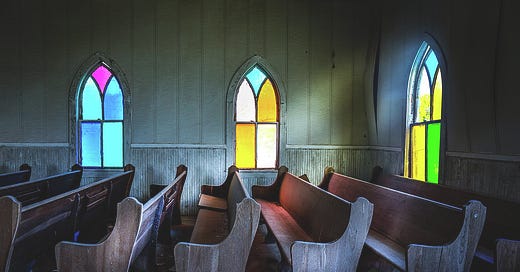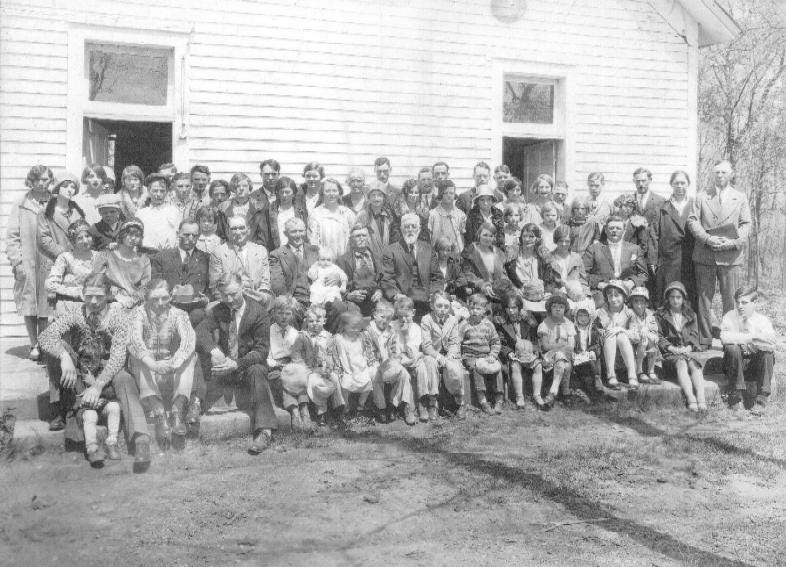The death of the churches has more than a little to do with the death of the pulpit. But the hope of new light is visible for those with eyes to see, and with faith to do something about it.
What are people seeking when they come to church? I’ve often pondered this question when visiting small, ageing congregations, especially in rural areas. Many village chapels and parish churches across the western world have become desert-like places. A vast expanse of empty pews. Just a few whispering heads remain here and there dotted around like islands, engulfed by the sheer vacancy around them.
It’s a visible emptiness, a physical manifestation of the brazen unbelief of our age. You see it and you feel it. You even hear it through the hushed silences echoing the room. Some of the whispering heads can point to themselves as children in the landscape photographs hanging in the vestibules from half a century earlier. The building always looks impossibly busy, overflowing with children. Even if the smiles seem somewhat understated compared with generation Instagram, the sense of vibrant community is always palpable.
Over the years, something happened to these congregations, these worship services. Or, something failed to happen. They no longer speak to people as they once spoke. Yet thousands of such congregations limp on today.
They watch on as similar-looking churches in nearby towns and villages close down, year on year. They see these great old buildings which once heralded the light of conversion to pub-dwellers now converted into pubs themselves. Those who still come know their time will probably come too. And yet they still come. What are they expecting to happen?
For some, it is precisely the safety of knowing that nothing unexpected will happen. Hymns, prayers, offerings, sermons, tea, biscuits. Such rhythms may help to disciple our stubborn spontaneity into steadfast consistency, but such rhythms alone did not save their neighbour churches from dying and will not save theirs either. It is only ever the living and active Word of God that saves or keeps a church. Will we let it speak?
The Potency of the Pulpit
It is the preacher who must first answer this question. The tentacles of decline may well be found in many things beyond the church service itself. Failed households, broken homes, educational indoctrination, entertainment saturation, ideological infiltration, all such things play their part.
But church decline ultimately starts in the pulpit, not the pew. ‘Life and death are in the power of the tongue’ (Prov. 18:21). What was said (or not said) to keep these worldly infiltrations from weakening the resolve of these churches, from straying from the course, from fulfilling their given ministry, from keeping their covenants, from speaking and living as they once did?
Keep reading with a 7-day free trial
Subscribe to That Good Fight to keep reading this post and get 7 days of free access to the full post archives.





